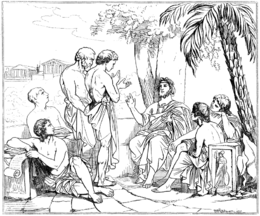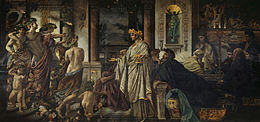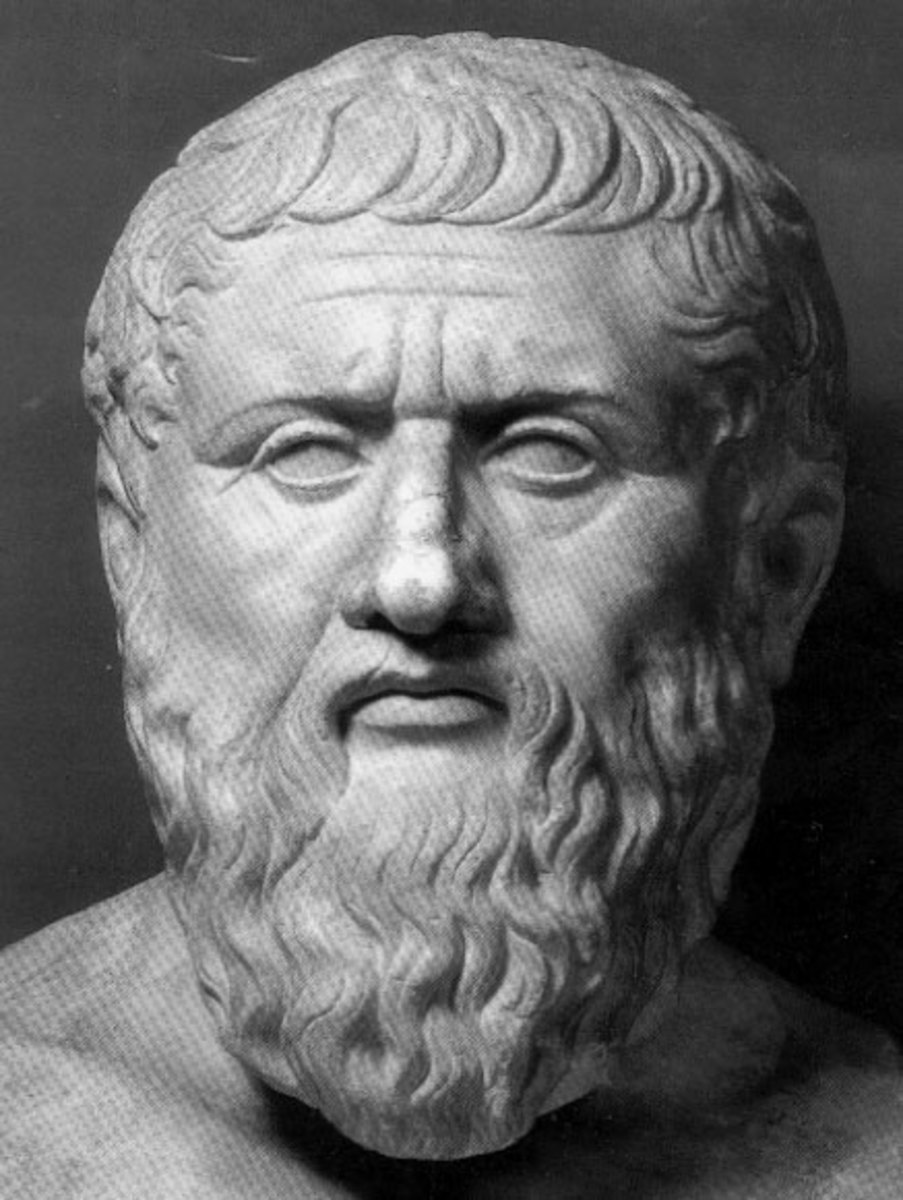On Principle and Pragmatism IIIb - Plato, Washington, Adams, Jefferson, and the U.S. Constitution
Forward
THIS HUB BEGINS part two which looks at the development of Plato's final decision that led him to drop his idea that the best government is one ruled by a wise Philosopher-King to one ruled by Law.

Plato's Second Trip to Sicily
SOON AFTER DIONYSIUS I dies, his son Dionysius II took his place, and was not much of an improvement. Enter stage left, Dion, Dionysius I's brother and Dionysius II's uncle. This is where the story gets interesting.
Dion was wealthy and powerful in his own right and could have contended for power with Dionysius II. Instead, Dion talks Plato into going back to Syracuse (Sicily) to tutor Dionysius II in his, Plato's, philosophy of how a just society should be set up and run. Dion believed that Dionysius II, properly educated under Plato's direction in the theory that he and Plato had discussed so much, would lead to a realization of that idea. In short, Dion wanted Plato to turn the young king into a philosopher-king, the lover of wisdom, who would then rule Sicily fairly and show the world what a perfect society might be like. Unfortunately for Plato and Dion, Dionysius II had other ideas.
The young king was not really interested in learning "the love of truth" and palace intrigue ultimately turned Dionysius II against Dion and Plato, the former was sent into exile while Plato decided it would be a wonderful idea to return to Athens once more. Dionysius II, for his own purposes, tried to keep Plato on but was not successful.
Back at home, Plato considered his experience with each tyrant King of Sicily, how they ruled, how they treated the citizens of Syracuse, the main city-state of Sicily, as well as the other cities under their control. From this harsh reality of real-politic was born his most famous work, "The Republic"
Where The Republic Was Born

Plato's "The Republic"
PLATO WROTE THE REPUBLIC AROUND 360 BC, to discuss justice and the character of the City and Just Men. Plato uses a dialog between Socrates and various Athenians and foreigners to discuss the meaning of justice and examine whether or not the just man is happier than the unjust man by proposing a city ruled by philosopher-kings. In terms of the Greek world at that time, the City or City-State was the largest unified social entity just as the Nation is largest unified social entity today. In Plato's day, there was no Greece, per se, there was Athens, Sparta, Corinth, Thermopylae, etc.
Plato concluded in "The Republic" that the only path to a truly Just, ideal City-State was to have it ruled by a Philosopher-King. He reasoned that Democracy was inherently unjust in that it's underlying principle of "the greatest good, for the greatest number" will ultimately become a "tyranny by the majority", which, by definition, is an unjust society. David Hume expanded on this "tyranny" idea 2000 years later in his "On Liberty" and Washington, Adams, Jefferson, and the others who remained in the Constitutional Convention understood this dichotomy which is part of the reason the American Senate works the way it does today.
Plato saw society as being made up of three distinct groups or classes of citizens: the workers, the warriors, and the rulers. It should be obvious what Plato had envisioned for his perfect, Just society; people who are fit to produce, people who are trained to protect the society, and those people who are sufficiently talented and educated to rule the society. This last group, the rulers, are not your everyday humdrum set of leaders, but a very special set of individuals who possess the necessary wisdom to rule Justly, with a capital J, a very select group indeed. In fact, in Plato's view, there is only one class of individuals whose lives revolve around the search for truth and wisdom, the Philosopher. In The Republic 475c, Plato describes these philosophers as "those who love the sight of truth" and as such are the only ones who have the requisite ability to rule a society properly, hence, the "Philosopher-King".
You can see how this is a total break from the idea of the Athenian Democracy, as practiced then, and really isn't in sync with our view today as what Democracy is; at that time Plato believed in what is in effect a benevolent dictatorship, not tyrannical for sure, but a one-man rule nevertheless even though he may govern through Reason and Wisdom, again with capital letters. It is interesting to note that shortly after America won the revolution, that is the way many in America saw George Washington and actually tried to draft him as America's Philosopher-King; Washington politely declined.
Plato came to this view from his experiences with Dionysius I, Dionysius II, and the court over which they presided. He came to understand the corrosive power of palace intrigue and the ability of one unscrupulous man to maneuver to seize control in the guise of democracy .. such as Dionysius I had done. But, he also saw the possibility that if the right person was chosen to lead, one who led by reason and wisdom rather than self-centered interests, then a Just society would result. Plato reasoned that (paraphrased):
"until philosophers are able to rule as kings and until political power and philosophy coincide, then neither the cities nor the human race can rest from the evils of man" (Republic 473c-d)
This is why Plato was persuaded to return to Dionysius II's court; he was led to believe that finally, the young King was willing to learn Philosophy. But, after this disastrous experience, Plato changed his mind.
To Be Continued
When I started writing this hub, I said it was going to a short essay. Over 3000 words later, I had to go back and delete that statement. Consequently, I broke this hub into three parts and this concludes Part 2. Please enjoy Part 3 with the link below.
This content is accurate and true to the best of the author’s knowledge and is not meant to substitute for formal and individualized advice from a qualified professional.
© 2011 Scott Belford



![On Principle and Pragmatism Ia - U.S. Constitutional Convention [9]](https://usercontent2.hubstatic.com/13151065_f120.jpg)



![American Politics: The BIG LIE in Politics, From The Republican Presidential Convention [124] American Politics: The BIG LIE in Politics, From The Republican Presidential Convention [124]](https://images.saymedia-content.com/.image/t_share/MTc2NDYyMjI1MzEyNjU1MzIy/the-big-lie-in-politics-from-the-conservative-side.jpg)
